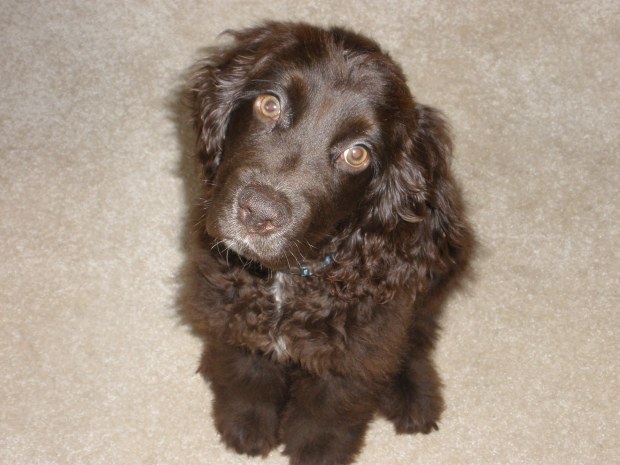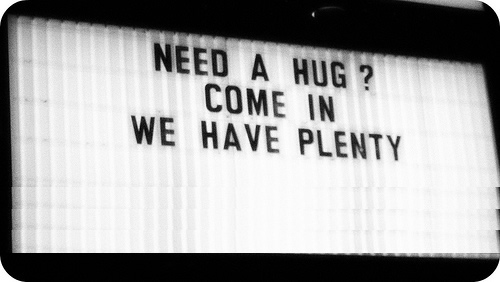I hate calling diabetes an illness. It implies that I am sick. I feel like sick should be reserved for people that are in dire straights, in need of immediate medical attention. We’re all patients in some way, shape, or form, but not all the time, and certainly not every day. Still, there are chronic conditions that some of us have to operate with, and in honor of Invisible Illness Week (which was actually last week, but humor me anyway), here is a list of things about mine that maybe you didn’t know.
1. The illness I live with is: Type 1 diabetes. Simply put, my body does not produce insulin. Not even a little. Not even at all.
2. I was diagnosed with it in the year: May 11, 1981
3. But I had symptoms since: I was two years old when I was diagnosed. You see, what had happened was I was minding my own business out in my yard, playing with my ball, just doing my thing. Then this girl comes along with her milkshake, and all these other boys showed up in the yard. Next thing I knew, I had diabetes. True story.
4. The biggest adjustment I’ve had to make is: I make adjustments with diabetes every single day. It’s a disease that requires near constant adjusting. I have to make adjustments in the amount of insulin I take based on what I eat, how active I am, what kind of activity I am doing, if I am sick, and sometimes for no reason at all. Every single day is different with diabetes, and the biggest adjustment is accepting that life is not scripted.
5. Most people assume: That if I’m having a low blood sugar, I need insulin. That is exactly what I do NOT need when I’m low! Insulin is a hormone responsible for lowering blood sugar, not raising it. Do not touch my insulin pump…EVER. If I am low and need your assistance, I need you to help me get something in me that is easy to chew and swallow that has glucose or sugar in it to get my blood sugar up fast, such as glucose tabs, juice, or even a regular Coke (not Diet!). If I am unresponsive, or you cannot get me to cooperate, please don’t hesitate to call 911 and ask for help. I’ll thank you later.
6. The hardest part about mornings are: Everything. I hate mornings. Especially before I’ve had my coffee. Sometimes the grumpiness is exaggerated by an early morning low or high blood sugar, making me even more…um, difficult. See #5 above for what you should do if I’m low.
7. My favorite medical TV show is: House. But that is primarily because of Olivia Wilde. (What? There’s more to life than just diabetes!)
8. A gadget I couldn’t live without is: My blood glucose meter. I could live without my pump (if I absolutely had to), as long as I have some way to inject insulin. And I could live without my CGM (Continuous Glucose Monitor) if I had to. All of these pieces add up to optimal diabetes management (for me, YDMV), and I hope I never have to live without any of them. But without my meter, I would have no idea what my blood sugar is, and I would have no way of knowing what action I need to take to manage my diabetes effectively. In essence, without my meter, I would be blind. (Diabetes pun not intended.)

9. The hardest part about nights are: Sleeping. Not only do I feel like sleep is the single most biggest waste of time ever, it is also dangerous for a person with Type 1 diabetes because it is when we are most vulnerable. Sleep is the time when our blood sugar can drop or rise without our being aware, and without the ability to correct it. Too many people, adults and children alike, have been lost to Dead in Bed Syndrome. This is reason enough for why we need a cure…NOW.
10. Each day I take no pills & vitamins. (Just insulin. And awesomesauce.)
11. Regarding alternative treatments I: The treatment for Type 1 diabetes is insulin and monitoring your blood sugar closely, period. The alternatives are health complications and death. I have full faith that science will one day deliver a cure for diabetes. Until then, no amount of exotic fruit or juice from a berry whose name I can’t pronounce is going to get us there. We absolutely must take insulin to keep us alive and well. Still, insulin is not a cure. Neither is cinnamon.
12. If I had to choose between an invisible illness or visible I would choose: Definitely invisible. I appreciate the choice of how visible or invisible I want my diabetes to be. Though I normally don’t, if I choose to hide my diabetes, I can.
13. Regarding working and career: I’m a medical librarian, a diabetes blogger and advocate, I teach, I speak, I travel, and I do anything that anyone else can…and I do it with Type 1 diabetes. I would love to someday have a job working closer with diabetes, on a diabetes hub, maybe with a company that focuses on diabetes, or that will work with me to work with others with diabetes. I absolutely love meeting other people with diabetes, sharing with them, helping them, and seeing that look when a parent realizes that their child with diabetes is going to grow up and be okay, or when that adult with diabetes finally finds someone else to share with who simply gets it.
14. People would be surprised to know: That even after more than 30 years with diabetes, there is still much of it that I can’t explain. For example, how can my CGM tell me that I have a “Low Predicted” and then an hour later I’m high with a BG of 170 mg/dl? Diabetes is pure nonsense sometimes.
15. The hardest thing to accept about my new reality has been: It’s not new, but I still can’t accept that there is anything that I can’t do because I have diabetes. Yes, this gets me in trouble sometimes. No, it doesn’t stop me.
16. Something I never thought I could do with my illness that I did was: I’ve never believed there was anything I couldn’t do with diabetes. Still, I like to push the envelope. Skydiving is fun.
17. The commercials about my illness: When I see a commercial about diabetes, I feel like it is targeting the vast majority of people who have Type 2 diabetes, and usually an older audience. I like Wilford Brimley and all, but that isn’t my generation, so I really wish someone would do something that appeals to those of us with Type 1 or Type 2 diabetes who are under the age of retirement.

18. Something I really miss doing since I was diagnosed is: Life with diabetes is all I’ve ever known, but I miss what I imagine it is like not having to carry so much diabetes stuff around with me. Sometimes I feel like the trash lady from Labyrinth, especially when I travel and end up carrying enough diabetes supplies to last me for two months, even though I’m only going to be gone for two days.

19. It was really hard to have to give up: Although I don’t think my personality is that of someone who would thrive in the military, it does sometimes aggravate me that diabetes took away the option for me to join a branch of the armed forces. Still, I appreciate that I am able to be here, alive and well, so that I can appreciate all of those who have.
20. A new hobby I have taken up since my diagnosis is: Blogging and engaging with the Diabetes Online Community (DOC) has been one of the most rewarding aspects of my life with diabetes so far.
21. If I could have one day of feeling normal again I would: I don’t feel abnormal, except when my blood sugar is too low or high. I wouldn’t be opposed to a day without having to monitor my blood sugar and every single thing that I do and eat. If I could have that, I’d probably just spend all day pigging out in the candy shop at Walt Disney World.
22. My illness has taught me: Patience, and the fact that I don’t have enough of it.
23. Want to know a secret? One thing that people say that gets under my skin is: “How sick are you?” I want to really make them feel awkward and answer that question with something akin to, “Well, at night I dream of riding horses naked in the rain, while hunting dinosaurs with rocket launchers, and then after a good hunt sitting down to a feast of buffalo pterodactyl wings and celery sticks. With ranch dressing.” I’m weird.
24. But I love it when people: Take the time to ask me questions, and clarify what they know or thought they knew about diabetes.
25. My favorite motto, scripture, quote that gets me through tough times is: “You can turn painful situations around with laughter. If you can find humor in anything, even poverty, you can survive it.” — Bill Cosby
26. When someone is diagnosed I’d like to tell them: You can do this. And you will do this. And you will be better because of it. Because you’re good enough, you’re smart enough, and doggone it, people like you.
27. Something that has surprised me about living with an illness is: That most of the time I don’t feel ill from it. Awesomesauce!
28. The nicest thing someone did for me when I wasn’t feeling well was: When you have a low blood sugar with diabetes, it tends to wreck all plans of whatever was happening prior to that moment. I am always and eternally grateful for the folks that put me first when I have a low blood sugar and need a little help. Here is one such story.
29. I’m involved with Invisible Illness Week because: If just one person reads this and learns something new about diabetes, then that is one person who is more empowered than they were three days ago when they started reading this list. (It’s a long meme!)
30. The fact that you read this list makes me feel: Grateful. Whether you have diabetes yourself, or someone you care about has it, I hope you were able to take away something worthwhile.
I think it will be interesting to look back on these answers and see how and if they change with time. Are you curious? Do it!






















